Commercial waste is a broad category, covering everything from food and dry mixed recycling, to confidential and even hazardous materials. Essentially, it’s any waste produced by a business on its premises. Because this accounts for nearly a quarter of the UK’s total waste output, it’s vital that businesses understand and know how to deal with the different streams.
At Great Western Recycling, we deliver seamless waste management solutions for businesses of all sizes, in all sectors. Whether you need one-off skip hire or regular collections, we can help your business rationalise its waste output and achieve zero waste to landfill.
In this article, we explore the different types of waste commonly produced by businesses and how they can be effectively dealt with.
Types of Commercial Waste
General Waste
General waste covers any type of common, non-hazardous, mixed waste that cannot be recycled. This might include food packaging, laminated paper, or polythene.
Traditionally, non-recyclable waste has been disposed of in landfill sites. The environmental impact of landfill, however, means it is vital businesses find alternative solutions. Of course, reducing non-recyclable waste altogether is the best solution, but it is hard to avoid producing any general waste at all.
Fortunately, Great Western Recycling take a different approach to general waste. At a materials recovery facility, anything that doesn’t get recovered goes through thermal processing to generate green electricity. Working with our team of waste experts is a great way to reduce your business’ impact.
Dry Mixed Recycling
When we talk about dry mixed recycling, we mean any clean recyclable waste that is free from contaminants. It is produced by a wide range of business and usually includes paper, cardboard, metal cans, and plastic.
Dry mixed recycling needs to be separated before each type of material can be recycled. Paper and cardboard are then pulped, metal cans are shredded and melted down, and plastic undergoes melting or chemical recycling.
Glass Waste
Glass waste is commonly produced in large quantities by restaurants and other hospitality businesses. Glass is an example of a material that can be melted down and made into new products again and again without degrading its integrity. Implementing a recycling scheme for this stream can therefore have a huge impact on the amount of waste you produce.
At Great Western Recycling, we offer cost-effective solutions to glass waste, supplying 240 litre bins that can be filled with different colours of glass.
Read next: Glass Recycling FAQ
Food Waste
Any organic produce that has been discarded is classed as food waste. Hospitality businesses and food manufacturers will typically produce lots of food waste, but offices will also produce a smaller quantity if employees eat at work.
Food waste is dealt with at an anaerobic digestion facility. Here, it is converted into renewable energy.
Read more: Benefits of Food Waste Recycling
Clinical Waste
Healthcare service providers, private clinics, tattoo parlours, and other similar businesses will produce clinical waste. This might include swabs, bandages, dressings, medicines, syringes, and other pharmaceutical products, as well as materials that wholly or partly contain animal or human tissue. Because of the risk this poses to public health, clinical waste requires specialist disposal.
Hazardous Waste
Waste is described as hazardous if it has a harmful impact on the environment or public health. Something is classed as hazardous if it is toxic, reactive, ignitable, or corrosive. Examples can include batteries, print toner, brake fluid, solvents, light bulb tubes, fridges, asbestos, or pesticides.
Whether you need scheduled regular pick-ups or a single bulk collection of hazardous materials, the team at Great Western Recycling are on hand to advise and support your business.
Check out our blog on hazardous waste removal for more information >
Washroom & Sanitary Waste
Washroom and sanitary waste comes from the bathroom bins of commercial buildings and can cover a range of items including sanitary towels, nappies, and tissues. This type of waste is often produced in large volumes by hospitality and leisure businesses.
Here at Great Western Recycling, not only do we collect and dispose of waste, but we also ensure your facilities are maintained to a premium standard. We supply hand soap, air fresheners, and hand dryers, and even provide entrance doormats to be exchanged on a regular basis. Get in touch to find out more.
Washroom & Sanitary Waste Services >
Confidential Waste
All businesses produce confidential waste. Data protection laws mean it’s essential this waste is dealt with properly to avoid hefty fines. By confidential waste, we mean any waste that contains personal information and data that could be used to identify people.
Finding a waste management provider that can handle data and confidential documents is a priority for all businesses. Our confidential waste service includes document shredding in full compliance with data protection regulations, helping your business stay secure.
How to Dispose & Get Rid of Confidential Waste >
Manage All Types of Business Waste in One Place
Business waste management is important to get right. Not only can dealing with waste effectively reduce your impact on the environment, but it will also streamline your operation and save you money in the long run.
Great Western Recycling have over 35 years’ experience providing waste management and recycling services, helping businesses across the UK achieve greater sustainability. Whatever streams of waste you produce, we can create a tailored solution that works for you.
For more information about what we can offer your business, talk to our friendly team today.
See more: How to Reduce Business Waste
See more: What Happens to Waste & Rubbish After it is Collected
